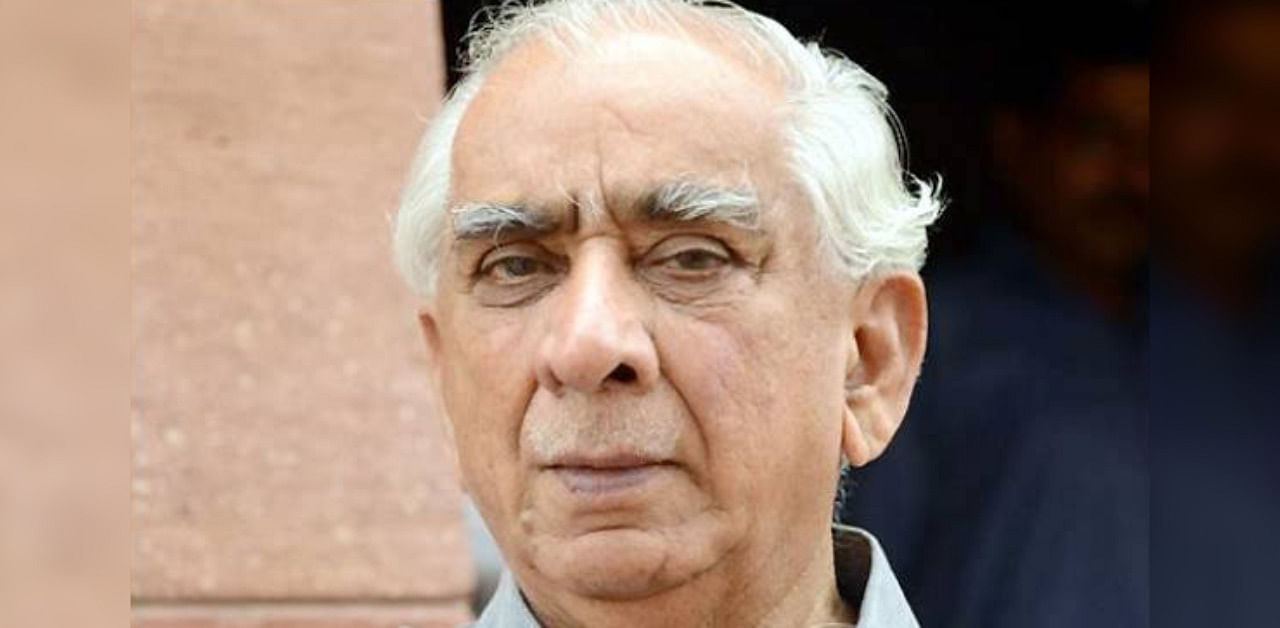
Armyman-turned-politician Jaswant Singh, the External Affairs Minister in the Vajpayee government who reshaped India’s foreign policy in the aftermath of the 1998 nuclear tests and transformed relations with the US, breathed his last here Sunday morning after a prolonged illness. He was 82.
Singh passed away at 6:55 a.m. at the Army Hospital (Research and Referral), where he was admitted on June 25.
A founding member of the BJP, Singh was considered as the man for all seasons by the then Prime Minister Atal Bihari Vajpayee, who entrusted him with key portfolios of Defence, Finance and External Affairs.
“Jaswant Singh Ji will be remembered for his unique perspective on matters of politics and society. Jaswant Singh Ji served our nation diligently, first as a soldier and later during his long association with politics,” Prime Minister Narendra Modi said.
As External Affairs Minister, Singh’s task was cut out – to ensure that India does not face international isolation after the nuclear tests in 1998. The economic sanctions from key global powers followed, but it was Singh who made relentless efforts to blunt their impact by assuring the world leaders of India’s compulsions and its commitment to restraint and non-proliferation.
Singh also faced much flak for escorting three dreaded terrorists to Qandahar to bring back the passengers of hijacked Indian Airlines flight IC-814 on December 31, 1999, after tough negotiations with the Taliban leadership. Singh’s controversial visit to Qandahar continues to haunt the BJP till date.
Born on January 3, 1938, in Jasol in Rajasthan’s Barmer district, Singh was an alumnus of the National Defence Academy and served as a Major in the Indian Army. He quit the Army in the 1960s to enter politics – starting with the Jana Sangh and later the BJP.
He was a five-term Rajya Sabha member and elected to the Lok Sabha for four terms and enjoyed cordial relations with leaders across the political spectrum.
“As a person, Jaswantji was a true gentleman and will be remembered as a soft-spoken erudite and warm-hearted person. He was known for his sharp analytical mind and was respected by people across the political spectrum,” BJP veteran L K Advani said in a statement.
After the BJP lost elections in 2009, Singh caused a flutter in the BJP by demanding an enquiry into the reasons for the defeat. He was expelled from the BJP after his book on Pakistan founder M A Jinnah triggered a controversy for a sympathetic portrayal of the late leader. He was admitted to the party in 2010 but was relegated to the margins.
In 2014, Singh was denied a BJP ticket to contest the Lok Sabha polls from Barmer. He stood as an independent only to lose to BJP’s Sonaram Chaudhary.
In August 2014, Singh had a fall at his residence in Delhi and has been under coma and in and out of the hospital.
